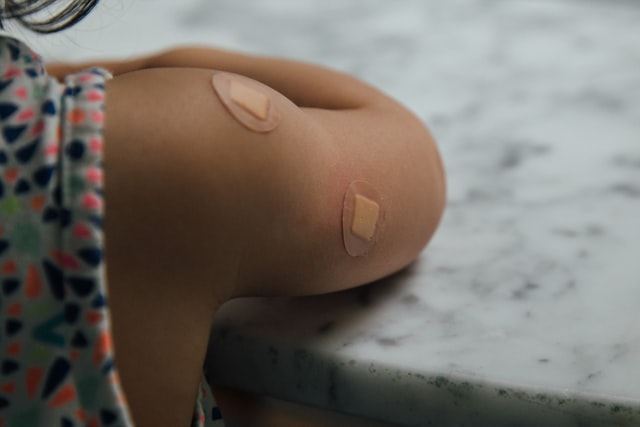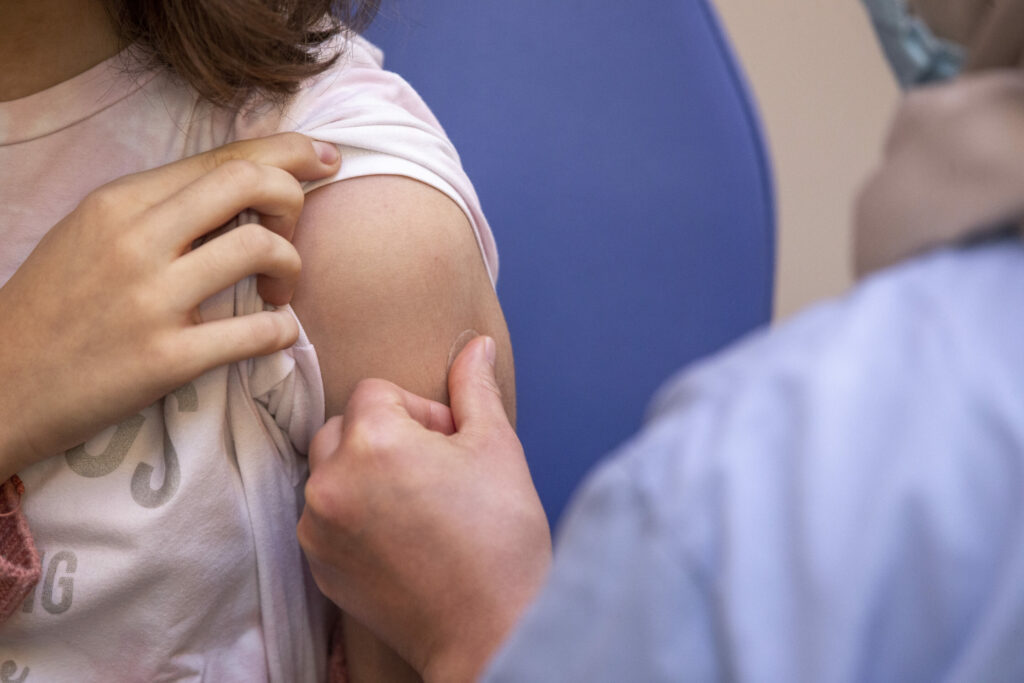With measles on the rise again, virologists are calling on people in their 30s and 40s to check whether they have been adequately vaccinated against the virus.
The number of measles infections – which can be particularly dangerous for babies, young children and pregnant women – is rising fast, with sewage water in both Flanders and Brussels testing positive for the virus.
"Currently there is a major measles outbreak across the country," virologist Steven Van Gucht of the Sciensano National Health Institute told Het Laatste Nieuws. "More than 150 cases have already been recorded in Belgium this year. That is still relatively few, we cannot speak of a pandemic. But the disease is clearly on the rise."
In 2015, Sciensano recorded 46 cases of measles in Belgium. Since then, the number has increased year on year. In 2019, the year before Covid-19 erupted, 480 infections were recorded. Due to the pandemic and accompanying measures, infections fell sharply. Now, however, they are rising again.
People born between 1970 and 1985
Vaccination against measles consists of two doses; one is given at the age of about one year and the other is between 10 and 13 years old. While the vaccine is included in the basic vaccination schedule for children in Belgium, it is not compulsory.
The shots are offered free of charge, together with the mumps and rubella (rubella) vaccine, and are administered through the agency the Child and Family Agency, the Centres for Pupil Guidance (CLB), the general practitioner or the paediatrician.
However, the measles vaccine has only been included in the vaccination schedule since 1985. "Most young people now do get vaccinated correctly and have had their two doses at a young age, but the same is not always true for people born between 1970 and 1985," Van Gucht said.

undefined
Importantly, as the measles virus was not circulating as strongly as before during that period, chances are that people born between 1970 and 1985 never had the disease when they were young and were not systematically vaccinated either. "This means they are not immune, but many people are unaware of that fact. It is important to check, especially for people working in healthcare."
As patients' records were not yet stored electronically at the time, it is not so easy for those born between 1970 and 1985 to find out their "measle status." However, Van Gucht stressed that they can check with their parents, consult the classic Child and Family Agency "booklet" (in which parents kept records of their children's vaccination) or request their medical records from their GP.
"And you can also consult your data online on myhealthviewer.be, although you will need your electronic identity card to do so. Your GP may also be able to have antibodies determined in your blood," he said.
Related News
- Measles virus detected in sewage water in north of Brussels
- World Health Organisation raises concerns amid surge in measles cases in Europe
- Measles infections are accelerating in Europe, WHO warns
If in doubt, and especially for people working in healthcare, Van Gucht recommends taking a vaccination. "That is never wrong. And know: if you have ever experienced the disease or you have been vaccinated correctly, you are protected for life. That immunity stays for life."
The Department of Health is also concerned about the increase in measles. "We do not yet see major outbreaks of measles in Flanders like in some other European countries, but clearly more infections are turning up within families, in schools and nurseries or camps and also infections whose origin we cannot identify. We have to be vigilant."

